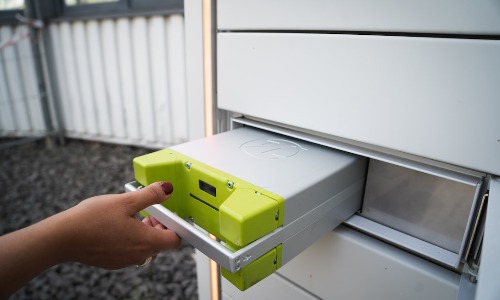Charging a 12V battery overnight has raised eyebrows for many, leading to debates about the risk of overcharging and even battery explosions. However, with an appropriate charger and the right precautions, the practice is generally safe.
Understanding the 12V Battery
A 12V battery, a common type of rechargeable battery, provides 12 volts of direct current (DC). Frequently found in automobiles, motorcycles, boats, and other equipment, they offer a reliable source of power.
Lead-acid batteries, the most prevalent 12V variety, contain two different metal plates submerged in an electrolyte solution. The charging process stimulates chemical reactions within the battery, generating electrical energy.
Like all batteries, 12V batteries have a finite lifespan influenced by factors like usage frequency and ambient temperature. When not powering vehicles or equipment, 12V batteries are also useful in solar power setups or as emergency power sources during power failures. The versatility of these batteries is enhanced by the ease of recharging them using an appropriate charger for their specific chemistry.
Overnight Charging of a 12V Battery
A Simple Yes or No? Deciding whether to charge a 12V battery overnight is not straightforward. It depends on several factors including the battery type and charger.
Various types of 12V batteries have different charging requirements and guidelines, so always consult the manufacturer’s recommendations before charging overnight. The charger used also plays a role, as some models automatically halt charging when the battery is full, while others lack this feature and may continue to charge a full battery.
Overcharging, a potential risk when charging batteries overnight, can damage the battery and shorten its lifespan. To minimize this risk, use a charger equipped with an automatic shut-off feature and avoid charging the batteries longer than the manufacturer suggests.
Safety Considerations for Overnight Charging
While overnight charging is convenient, safety considerations should not be overlooked. Not all batteries have the same level of protection; some have built-in circuits to prevent overcharging and overheating, while others do not.
Despite many modern chargers having automatic shutoffs, unsupervised charging still carries a minor risk of fire and other problems, especially with incompatible or off-brand chargers. External factors like room temperature and humidity can also impact the safety of overnight charging.
To maximize safety when charging a 12V battery overnight, use high-quality chargers recommended by the manufacturer and unplug them as soon as possible.
Overcharging a 12-Volt Car Battery
Is it Possible? Overcharging a 12-volt car battery can lead to severe consequences, including damage to the battery and safety hazards. Overcharging heats the battery, causing the electrolyte solution to boil and evaporate, leading to irreversible damage.
Leaving a vehicle’s charging system connected too long can often result in overcharging. Using a charger with a suitable voltage level for your specific battery type and disconnecting it as soon as the charging is complete can help avoid this issue.
How Long Should a 12V Battery Charge? The charging duration of a 12V battery depends on factors like the type of charger and the battery’s current charge level. Trickle chargers, which charge slowly, take longer than fast or rapid chargers. A completely drained battery also requires more charging time compared to a partially charged one.
Different batteries have different charging requirements, with Gel and AGM batteries needing more specific voltages and amperage rates than flooded lead-acid batteries. In general, most 12V car batteries should charge for at least six hours, with 8-10 hours being ideal for best results. Overcharging should be avoided to prevent battery damage and reduce its lifespan.
Manufacturer guidelines should always be followed when considering how long a 12V battery should charge, taking into account various influencing factors.
Is There Such a Thing as Charging a 12V Battery for Too Long? In a nutshell, a 12V battery, often found in cars and other vehicles, can be safely charged overnight with the correct charger, vigilant monitoring, and adherence to the manufacturer’s guidelines.
Overcharging, however, can lead to battery damage and may even result in a fire or explosion. It’s crucial to know when to stop charging your 12V car battery to prevent accidents and to maximize its service life.
So, what is the ideal charging time for a 12V battery? It depends on several variables, such as its capacity, age, state, and usage. As a rule of thumb, most batteries require between 4-24 hours to fully charge, depending on their size and output capacity.
If you’re unsure about the charging duration of your 12V battery or if it needs a maintenance check before charging, it’s best to seek advice from a professional. With the right care and handling, your reliable 12V battery can provide power for many years.






